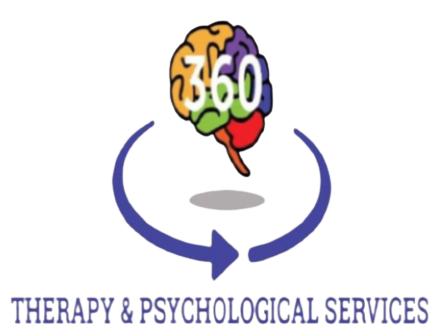7 Key Advantages of Psychological Counseling and Therapy

We provide a safe and supportive environment to help you navigate emotional, behavioral, and psychological challenges. Whether you’re facing anxiety, stress, depression, or seeking guidance through life’s transitions, our personalized counseling services are tailored to meet your specific needs. In this article, we’ll explore the key benefits of psychological counseling, how our therapy process works, and why choosing the Best Psychological Consulting Clinic is vital for enhancing your mental health and overall well-being.
What is Psychological Counseling?
Psychological counseling is a therapeutic process where individuals work with a licensed counselor or therapist to address mental health issues, emotional difficulties, and life challenges. This form of therapy is designed to provide support, insight, and tools for managing various psychological problems, including stress, depression, trauma, and relationship issues. The goal of counseling is to help individuals lead healthier, more fulfilling lives by developing coping strategies and improving emotional well-being.
Benefits of Counseling and Therapy
Counseling offers many benefits for mental health, emotional stability, and overall well-being. Some of the most significant benefits include:
Improved Emotional Health: Counseling helps individuals understand and process emotions, leading to emotional resilience and stability.
Better Stress Management: Therapy provides tools to cope with daily stressors more effectively, helping you maintain mental balance in challenging situations.
Enhanced Self-Understanding: Counseling promotes self-awareness, helping you understand your thoughts, behaviors, and feelings more deeply.
Relationship Improvement: Counseling can help address and resolve relationship issues, improving communication and understanding between partners, friends, and family members.
Personal Growth: Therapy supports personal development by helping individuals recognize areas for improvement and work on them in a structured, supportive environment.
Mental Health Maintenance: Regular counseling helps maintain mental health by addressing problems before they become more significant.
Support During Life Transitions: Major life changes such as career shifts, loss, or major family events can be challenging. Counseling provides a safe space to navigate these transitions.
How Does the Psychological Counseling Process Work?
The counseling process begins with an initial assessment, where the counselor gathers information about your emotional, mental, and behavioral concerns. After the assessment, a personalized treatment plan is developed to address your specific needs. Sessions typically involve talking through your issues, exploring underlying thoughts and feelings, and developing coping strategies to manage challenges. Depending on the type of therapy and the individual’s needs, techniques such as Cognitive Behavioral Therapy (CBT), talk therapy, or mindfulness practices may be used.
How Does Psychological Counseling Work?
Psychological counseling usually takes place over several sessions, depending on the individual’s goals and concerns. Here’s a step-by-step breakdown of the typical counseling process:
Initial Consultation: During the first session, you and your therapist will discuss your reasons for seeking counseling, your concerns, and your goals. This initial meeting is crucial for building trust and rapport with your therapist.
Assessment: The therapist will assess your mental health and emotional state, gathering information about your history, relationships, and current challenges.
Goal Setting: Together, you will set achievable goals for therapy based on your specific needs and circumstances.
Therapy Sessions: Through regular sessions, your therapist will guide you in exploring your thoughts, emotions, and behaviors, offering insights and strategies to improve your mental health.
Evaluation and Adjustment: Over time, your therapist will assess your progress and adjust your treatment plan as needed to ensure it remains effective.
Advantages of Psychological Counseling
There are numerous advantages to seeking psychological counseling. Here are the key benefits:
Confidential and Safe Environment: Counseling offers a private, non-judgmental space to discuss sensitive topics and emotions.
Personalized Care: Every counseling session is tailored to your individual needs, ensuring that your therapy is focused on what matters most to you.
Long-Term Mental Health Improvement: Counseling is not just about addressing current problems but providing tools that can be used to maintain mental health in the future.
Emotional Support: Having a dedicated professional to listen and provide guidance can significantly reduce feelings of isolation.
Behavioral Change: Counseling helps you recognize negative patterns of behavior and learn healthier ways to respond to challenges.
Conflict Resolution: Whether dealing with family issues, relationship problems, or work conflicts, counseling helps develop effective communication and problem-solving skills.
Personal Empowerment: By learning more about yourself and how to cope with life’s challenges, you gain a sense of empowerment that enhances your overall quality of life.
Importance of Psychological Counseling
The importance of psychological counseling cannot be overstated. Mental health is just as crucial as physical health, and counseling provides the emotional support necessary for individuals to thrive. It can prevent minor issues from developing into larger mental health problems, help manage chronic mental health conditions, and improve the overall quality of life.
The Need for Psychological Counseling
In a world filled with stress, uncertainty, and challenges, the need for psychological counseling has never been greater. Whether dealing with personal challenges, relationship issues, or career stress, psychological counseling offers the necessary support to maintain mental health. Individuals with anxiety, depression, or trauma can particularly benefit from consistent counseling sessions.
FAQs About Psychological Counseling
1. How can psychological counseling help me?
Psychological counseling can help you understand your emotions, improve your mental health, and develop coping strategies for handling life’s challenges. Whether you are dealing with anxiety, depression, or relationship problems, a counselor can guide you toward personal growth and healing.
2. What should I expect from my first counseling session?
In your first session, your therapist will likely ask about your background, your current challenges, and your goals for therapy. This session will help you and your therapist build rapport and create a plan for moving forward.
3. When is psychological counseling required?
Psychological counseling is often required when emotional, mental, or behavioral challenges start to interfere with daily life, work, or relationships. Counseling can also be a preventive measure to maintain mental health and prevent problems from escalating.
Conclusion
Psychological counseling and therapy are powerful tools for improving mental health and emotional well-being. Whether you’re struggling with a specific issue or simply seeking personal growth, counseling can provide the support and insight needed to lead a healthier, more fulfilling life. If you’re considering therapy, don’t hesitate to take the first step and seek help from a licensed professional. The benefits of counseling can last a lifetime, and investing in your mental health is always worth it.
recent post

Best Tips for Choosing the Right Family Doctor for Your Health Care

What to Expect from Psychodiagnostics Assessment – A Complete Guide


How to Find the Right Therapist for Your Mental Health Matters


